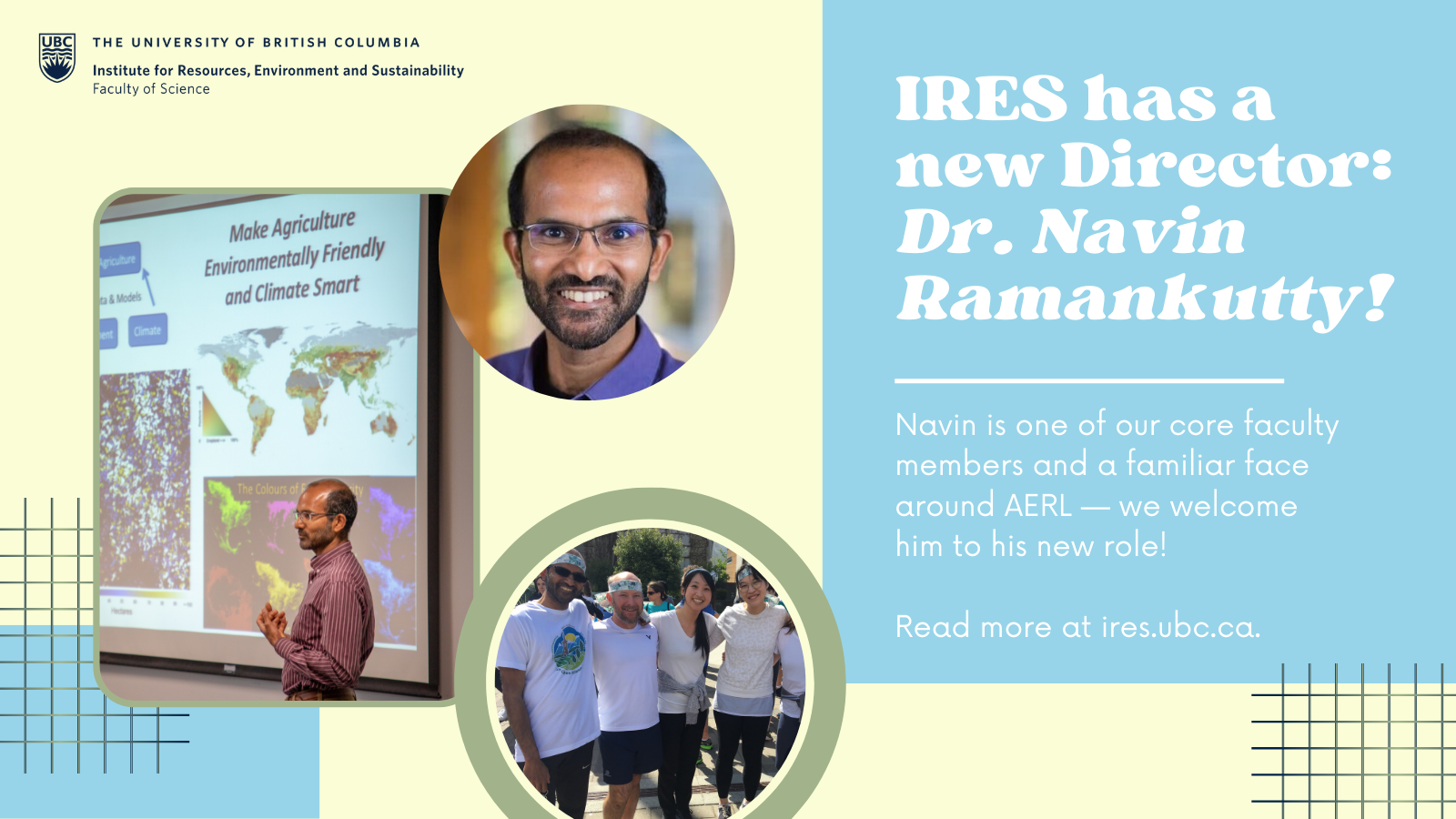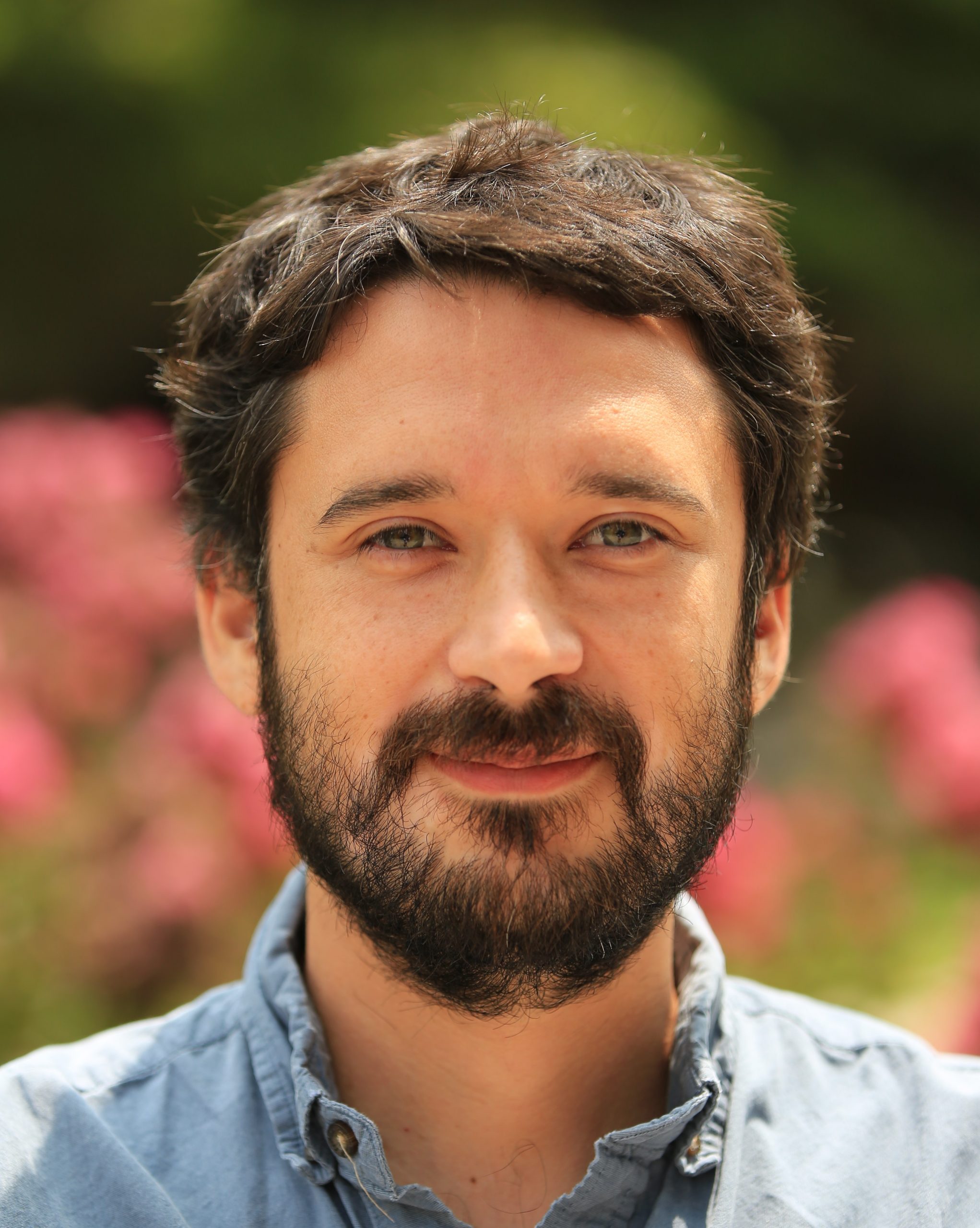IRES is welcoming Dr. Navin Ramankutty as our new Director on July 1, 2022, for a four-year term. We are delighted that Navin has agreed to become the next Director of IRES!
Navin is jointly appointed in the School of Public Policy and Global Affairs (SPPGA) in the Faculty of Arts and IRES in the Faculty of Science. The renewal of his Tier 1 Canada Research Chair (CRC) position in Data Science for Sustainable Global Food Systems was recently announced. From 2018 to 2019 Navin served as IRES’s interim head, during which he showed all the qualities of an exceptional leader.
In speaking about the unit he will be leading, Navin described IRES as a vibrant intellectual and social hub. He strongly believes that IRES initiatives offer solutions to many challenges we face as a society.
“IRES is a collective of top-notch scholars with diverse disciplinary backgrounds, skillsets and experiences, all of whom are interested in solving the world’s sustainability challenges. I can’t imagine working anywhere else right now,” he said. “So it’s all the more a privilege to now be vested with the responsibility of leading IRES for the next few years.”
As Director, Navin sees the main undertaking of his role as helping IRES continue to develop a collective vision and inspiring us to work toward it. The graduate student experience, implementing the Indigenous Strategic Plan and magnifying the solutions-oriented work at IRES stand out amongst his priorities.
Alongside his role as Director, Navin will continue to research a major challenge for the 21st century: transitioning to a sustainable global food system, which includes reducing hunger and malnutrition while also feeding two billion more people by 2050, lowering the environmental footprint of farming and making agriculture more climate-resilient. He and his research team are developing data and analytical tools to explore food system sustainability solutions that embrace a diversity of options and are context-dependent.
In recognition of his long-standing work on sustainable global food systems, Navin was awarded the prestigious Wihuri International Prize in 2020.
IRES thanks outgoing director Dr. Milind Kandlikar for serving our community, including his efforts in launching the department’s Vancouver Summer Program and establishing the iBios hiring cluster.
We have no doubt that Navin’s open communication style and clarity of vision will serve IRES well. We look forward to working as a collective under his inspired leadership.

